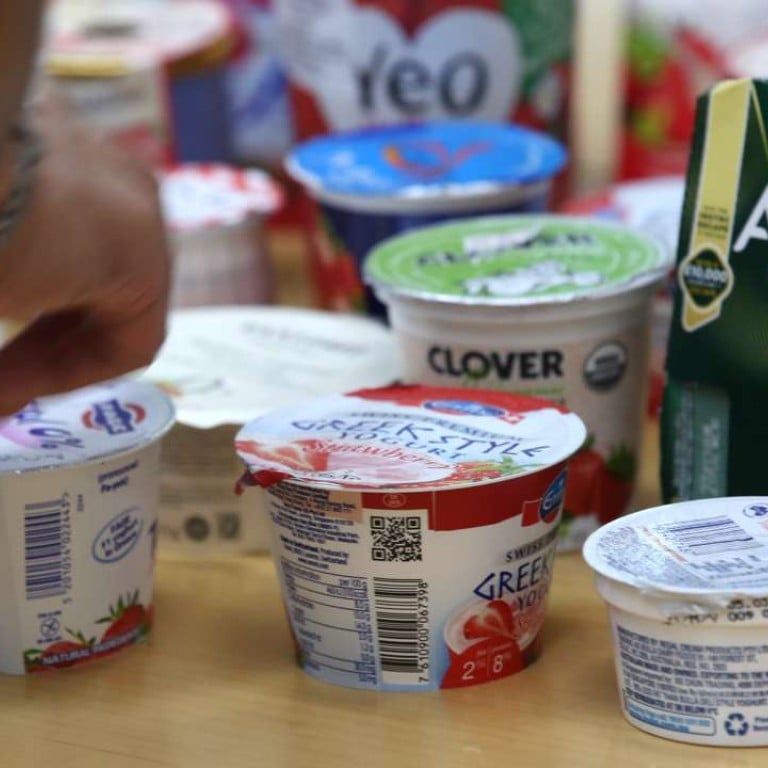
Sugar levels in yogurt far from sweet for Hong Kong watchdog
Consumer Council finds health-conscious shoppers may be getting a lot more than their regular helpings of calcium and protein
High levels of sugar were found by the consumer watchdog in yogurt and customers are urged to read nutrition labels carefully before buying such products.
Yogurt is a popular choice of health-conscious shoppers seeking their regular intake of calcium, protein, and probiotics.
The Consumer Council tested 45 samples of pre-packed yogurt and found one of the Fage brand contained as much sugar as 18.8 grams per 100 grams of yogurt.
If a consumer ate an entire 170 gram cup of yogurt, they would take on board 32 grams of sugar, or eight teaspoonfuls, in total. But the council noted there was a difference between naturally occurring sugars, such as the fermentation of milk in yogurt, and so-called free sugars, meaning syrups, cane sugar, fruit juice, and glucose-fructose syrup.
“The natural [sugar] is the one that we want, but in many cases the manufacturers would like to sweeten the product with some free sugars,” Consumer Council research and testing committee chairman Professor Wong Kam-fai, said.
Brands with the most sugar included Fage, Wallaby Organic, Waitrose, Greek Gods, and Snow.
The lowest sugar content was found in another Fage product, Emmi, CP-Meiji, and Farmers Union brands.
The World Health Organisation recommends adults consume no more than 50 grams of free sugars per day or 10 sugar cubes.
Those with medical conditions, such as diabetes, are more susceptible to health issues if they consume yogurt with a high sugar content.
The council recommends the public checks yogurt nutrition labels for sugar content to see whether it is natural, added, or artificially sweetened.
It also called on manufacturers to separately list the amount of added free sugars contained in their products.

